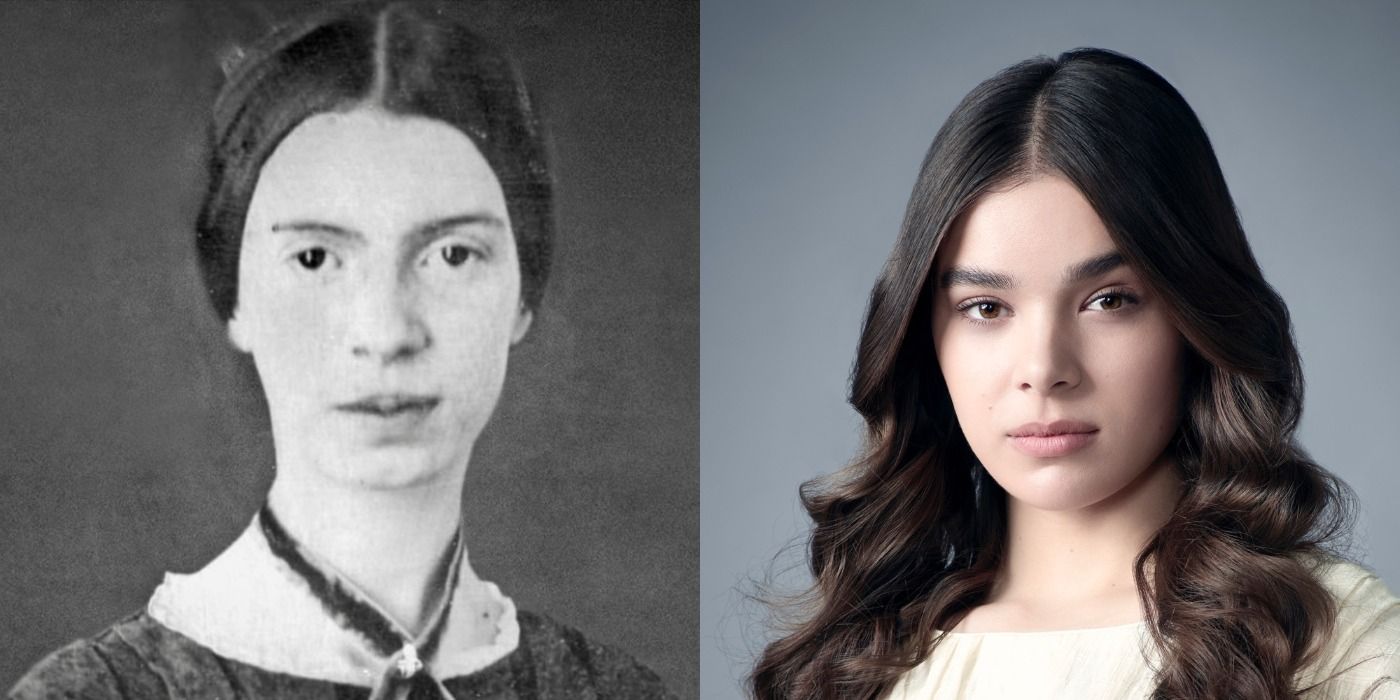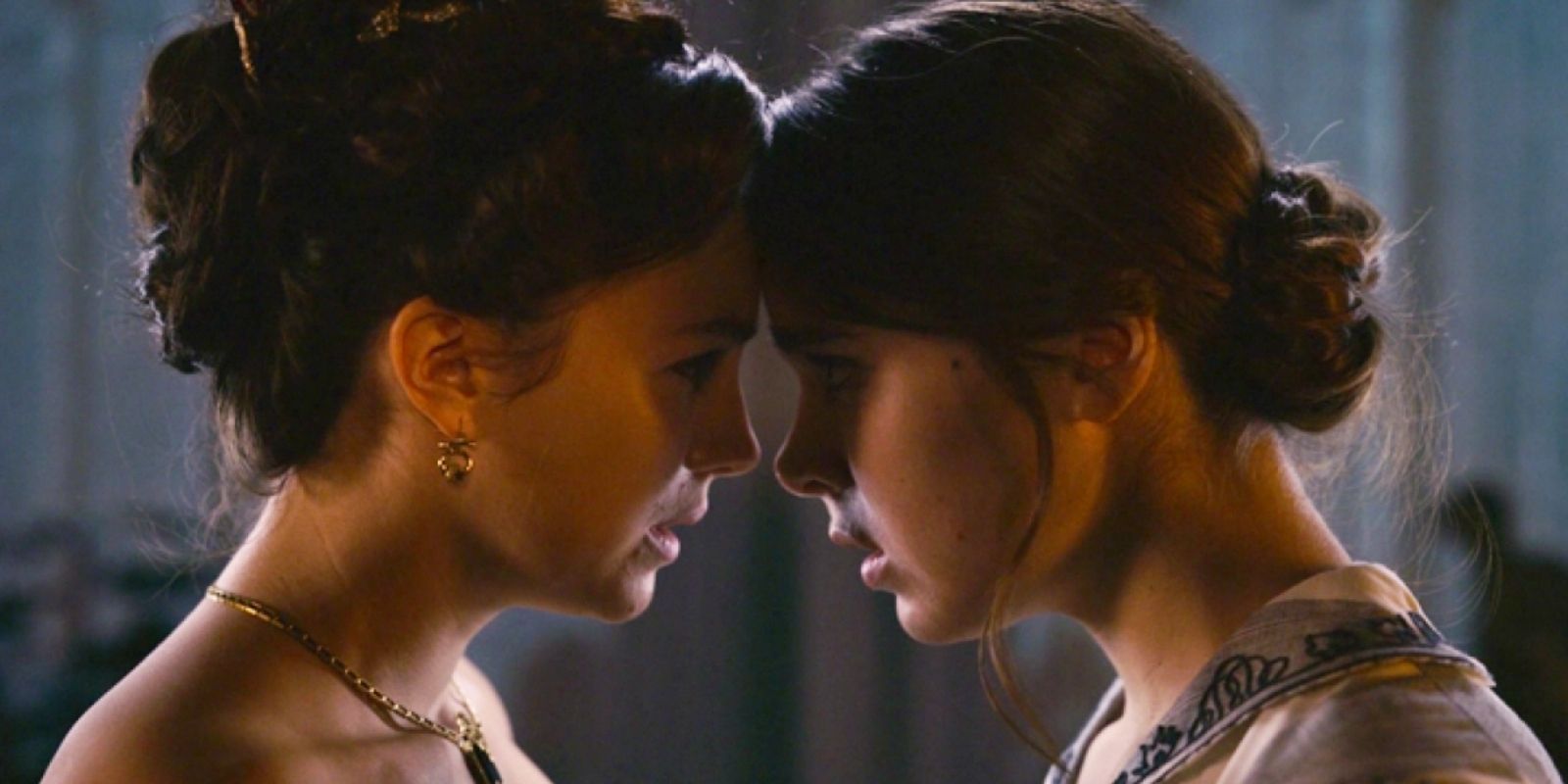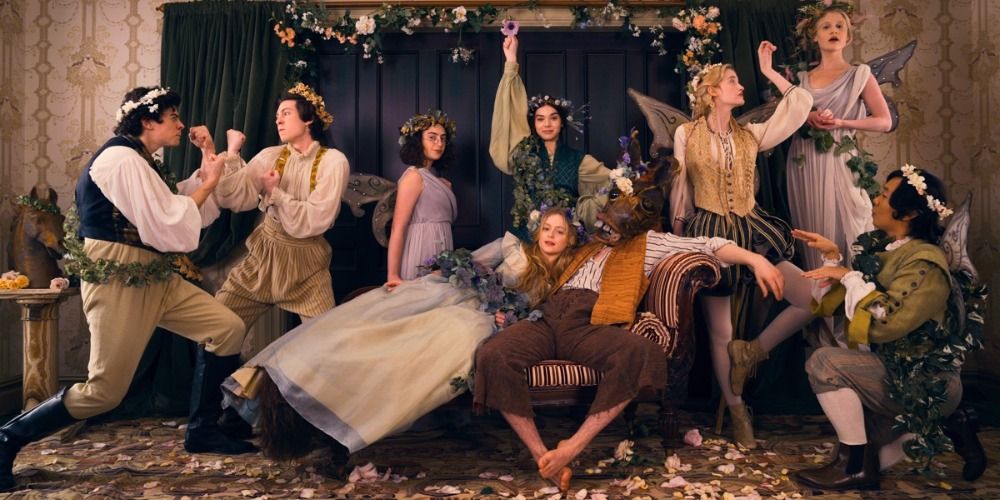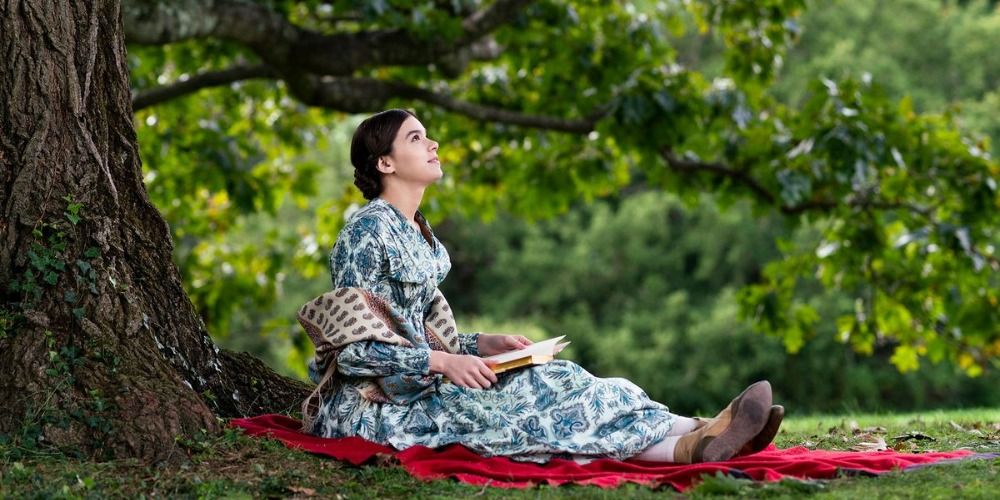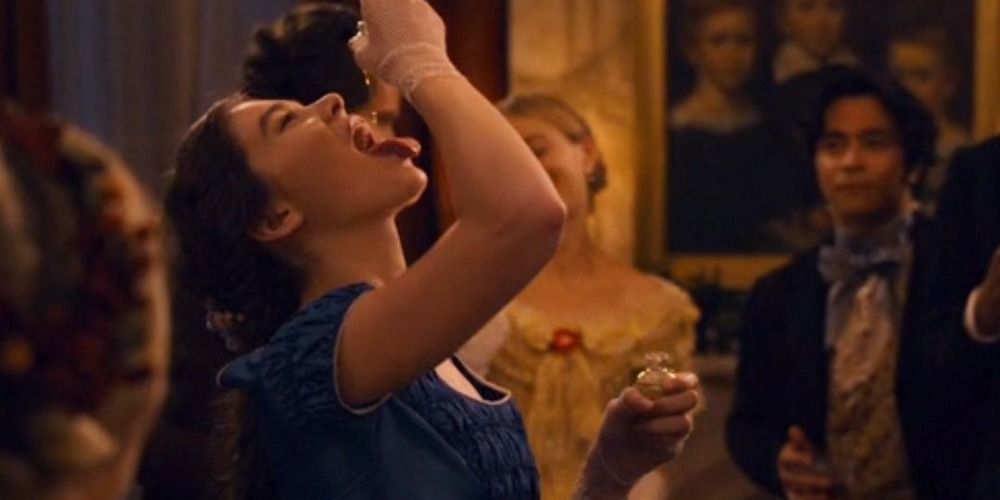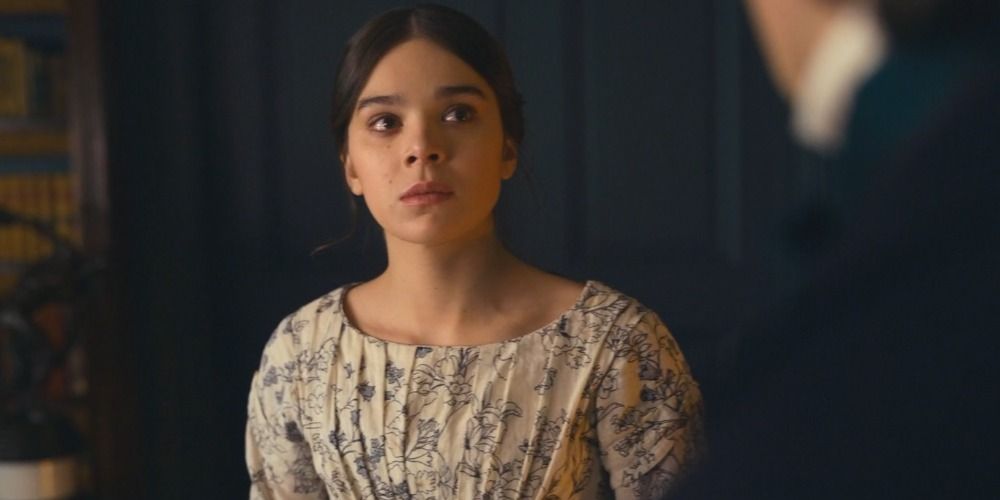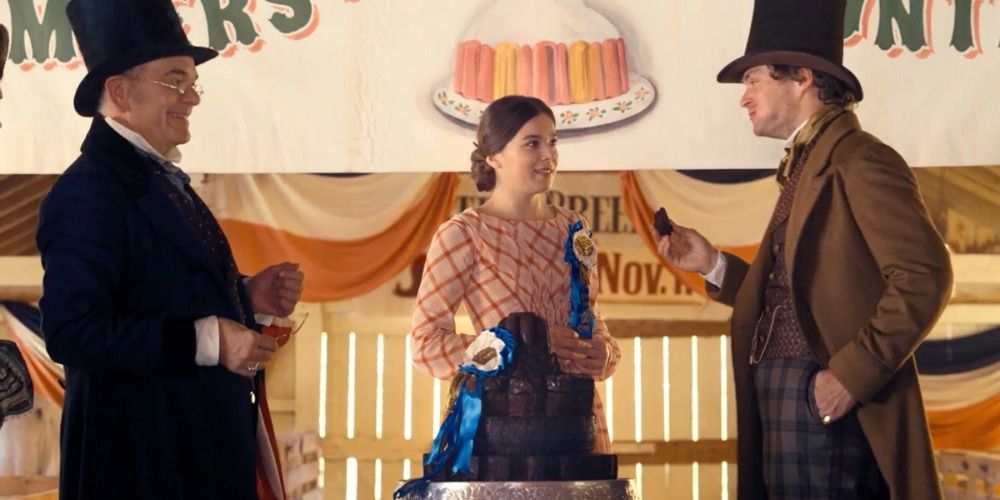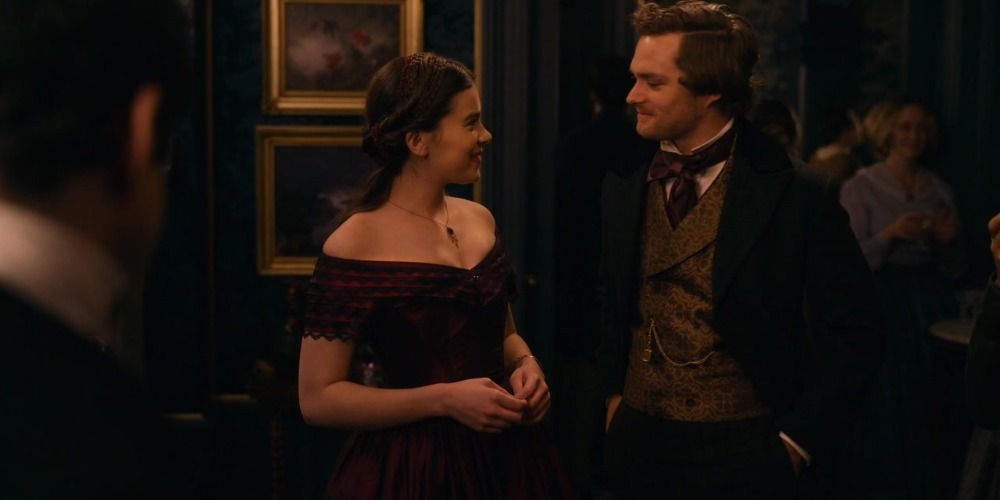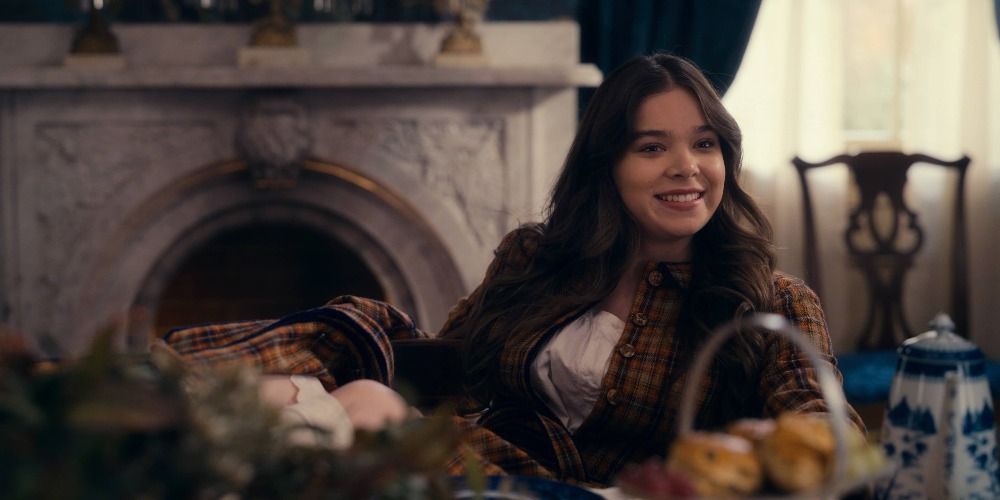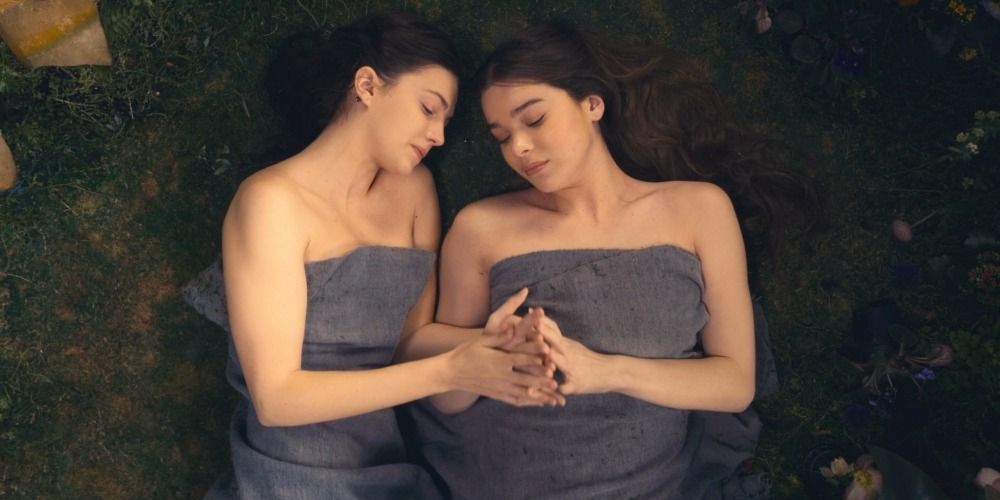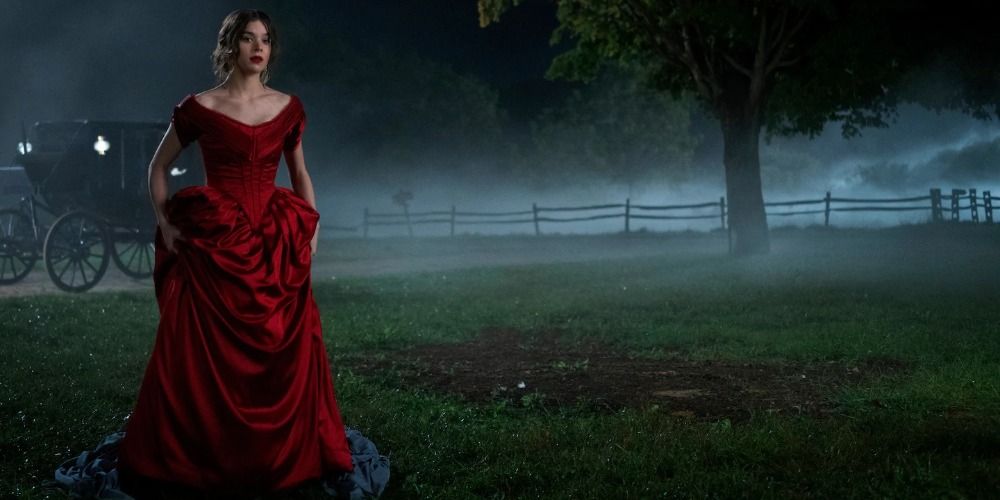Apple Tv's Dickinson is centered on (arguably) the most notable and famous 19th-century American poet, Emily Dickinson. Emily was a notorious house-hermit, and later in life preferred to never even leave her bedroom. She wrote some 1,800 poems about love, nature, illness, sex, death, and more.
While much of her life remains a source of mystery and intrigue, and despite all the rumors and hearsay, she is world-renowned and cherished for her poetic prowess. One of the highlights of the show is the opening picture credits, and the title of each episode, centering on one of the Dickinson Eccentric's many poems, which are also used throughout the episodes.
"I Felt A Funeral...in my brain."
This is the title of the final episode in season 1. This poem is appropriate given the circumstances of the episode: Emily is mourning the death of Ben, her dad's assistant and almost-lover, and the 'death' of her hopes to be with Sue when she gets married to Austin, a wedding she is no longer invited to.
Viewers witness her lying on the floor forlornly as she mulls over the heartbreak in her life.
"I Am Afraid To Own A Body"
This famous poem is apt for the issues that Emily deals with in this 5th episode of season 1 from Apple TV's Dickinson. The local Shakespeare club Emily leads -- and which involves her sister, bother, and friends -- decides to put on the Bard's tragic play Othello after A Midsummer Night's Dream. Emily is at one of her most 'awakened' states by the end, as Henry essentially schools her on why coercing him to play the title character just because he's Black and for her own means is problematic as a privileged and wealthy white woman.
This inspires her to write this poem about being afraid to own a body and a soul, 'Profound--precarious Property--Possession, not optional'. This also makes sense in light of George going behind Emily's back to ask her father for her hand in marriage and alludes to the patriarchal structures that simultaneously keep Emily down against the men in her life but also prop her up above Henry.
"Alone, I Cannot Be"
Episode 4 of the bio-dramedy can best be described as 'self-indulgent' for everyone except Emily. Fans witness her sitting under her great-grandfather's precious giant tree reading Walden, Henry David Thoreau's famous Naturalist book. She learns that the Amherst Belchertown Railroad is going to be going right through the three, and in her dismay decides to pay a visit to Thoreau for help in saving.
She wants to go alone, but George will not allow it, citing the cultural/societal rule of the time, and things only get worse from there when she learns Thoreau is a hypocritical fraud. "Alone, I cannot be--" unravels the poet's desire to be left in peace. She knows that company will be coming anyway and that their going away never commences. This poem is obviously the framework for the events in this episode.
"Wild Nights"
In this third episode from the streaming service, Dickinson's 'Wild Nights" is an appropriate title. When Mr. and Mrs. Dickinson go out of town for a night, Emily, Lavinia, and Austin decide to throw the house party of house parties in 19th-century Amherst, MA.
It is an opium-fueled, trap music-laden bender that typical teenagers with too much time on their hands, love for each other, and a lust for life, always do when the parents are away. The poem is fitting for this episode as the poet herself writes of wild nights 'with thee...our luxury', and in this episode when Sue and Emily's relationship begins to evolve.
"I Like A Look Of Agony"
This episode from season 2 centers on one of the foremost political events that was a catalyst for the American Civil War: when abolitionist John Brown raided Harbor Ferry in an attempt to initiate a slave revolt in the South by taking over the U.S. arsenal in Harper's Ferry, VA.
While Sam Bowles and Mr. Dickinson celebrate it for purely capitalistic purposes, Emily, Austin, and his friends lament -- in the middle of their tea party -- potentially going to war. Emily Dickinson's poem of the same name serves as a perfect backdrop for the episode, as the agony from the raid, knowledge of impending doom, and Emily's broken heart over Sam allude to the agony "Because...it's true -- Men do not sham Convulsion."
"Fame Is A Fickle Food"
In Apple TV's second season of Dickinson (ep. 2), Emily enters her decadent cake in the Amherst baking contest at the fair and wins the grand prizes: the ribbon, praise, and her name and recipe in the newspaper. This is the first time Emily is recognized in print for something, and while Sue argues it should be for her poetry, Emily has her reservations.
In a recitation to Sam, she states that "Fame is a fickle food upon a shifting plate...Men eat of it and die." This echos and foreshadows Emily's continued skepticism and complicated feelings surrounding fame.
"Forbidden Fruit A Flavor Has"
Episode 5 of season 2's Dickinson shows Emily in the throes of her fantasy about being published . . . and sleeping with Sam. At a salon party that night, Sam flaunts Emily around to famous figures as his newest muse, letting everyone in earshot know how famous she will be after Sam publishes her. During a lecture, they sneak off to the library where he shows her where her work will be on the shelves one day.
After being privy to rumors that Sam sleeps with women he publishes -- and Sue reassuring Emily it isn't true -- she has a sex daydream about him as she writes a letter to his wife, Mary. This short poem describes how sweet the flavor of vice and sin are when society and cultural norms/rules aren't condemning it; something Ms. Dickinson knew about well.
"I'm Nobody!"
"Who are you?" This 8th episode (season 2) gives fans what they have been waiting for. The show had been building up to Emily being published, and viewers were curious to know how it would pan out for the reclusive poet. It happened exactly the opposite of what Emily had feared: she became invisible to everyone around her.
As a 'ghost', Emily sees things she may not have otherwise, including Henry rousing other free Black people in the barn and Sam performing oral sex on Sue. This poem is the perfect set-up for the episode, as it describes Emily's dread at being 'a somebody,' a public figure; solidifying her disdain for fame.
"You Cannot Put A Fire Out"
The town gathers for Jane's baby's christening at the local church (that ends up burning down) while Emily fights to get her poems back from Sam, confronting him about these and the affair he's having with Sue. Later, when she and Emily have a fight about him, her poems, and how Sue has changed, she tells Emily she is in love with her. They end up having sex, having a feast of food, and laying on the grass in Emily's conservatory.
Dickinson's poem describes how something that ignites and spreads over everything around it cannot be extinguished, like passionate love. She also describes how a flood can't be folded into a drawer, as it would be found out by the wind; in essence, the overwhelming emotions of love for someone cannot be silenced.
"Because I Could Not Stop for Death, he kindly stopped for me."
The pilot episode and, perhaps, Emily Dickinson's most famous poem, go hand-in-hand. When Emily attempts to become a published author, she faces intense backlash, especially from her parents.
That night, she meets Death. He tells her that she will be the only Dickinson worth anything; that people will know about her and her poems for centuries to come. Death's carriage, like the poem "held but just Ourselves -- and Immortality."

